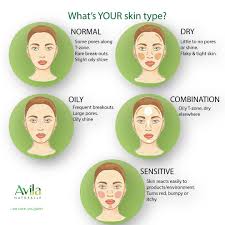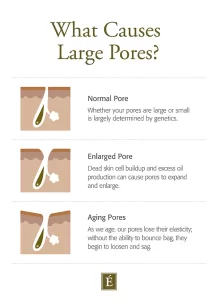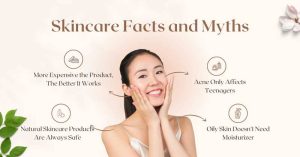The Ultimate Guide to Skincare: How to Build a Healthy Routine for Radiant Skin

Skincare
Skincare isn’t just about looking good—it’s about taking care of the body’s largest organ. Whether you’re a beginner trying to build a routine or someone looking to refine your regimen, understanding the basics of skincare is essential. The right approach can improve your complexion, address skin concerns, and even boost your confidence. Here’s a comprehensive look at what you need to know.
1. Understanding Your Skin Type

Skincare
. The main skin types include:
- Normal: Balanced, neither too oily nor dry.
- Dry: Lacks moisture, often feels tight or flaky.
- Combination: Oily in some areas (typically the T-zone) and dry in others.
- Sensitive: Reacts easily to products, often red or irritated.
Knowing your type helps you choose ingredients and products that work with your skin, not against it.
2. The Core Skincare Routine
. Start with these three foundational steps:
Cleaning
Moisturize
Regardless of your skin type, moisturizing is essential. It keeps your skin hydrated and supports its barrier function.
- Light, oil-free moisturizers are great for oily skin.
- Richer, cream-based moisturizers help dry or mature skin.
Protect (SPF)
Sunscreen is arguably the most important step in any routine. Use a broad-spectrum SPF of at least 30 every morning—even on cloudy days or indoors.
3. Building a More Advanced Routine Skincare

Skincare
Once you’ve nailed the basics, you can introduce targeted treatments:
Exfoliation
. There are two types:
- Physical exfoliants (scrubs): Use with caution—some can be too abrasive.
- Chemical exfoliants (AHAs/BHAs): Gently dissolve dead cells and are often more effective
Serums are concentrated treatments for specific concerns such as acne, hyperpigmentation, or wrinkles. Popular serum ingredients include:
- Vitamin C: Brightens and evens skin tone.
- Hyaluronic acid: Deeply hydrates and plumps the skin.
- Niacinamide: Reduces redness and controls oil production
Introduce new actives slowly to prevent irritation.
4. Skincare Myths to Avoid

Skincare
In the beauty world, misinformation spreads quickly.
“You don’t need sunscreen if it’s cloudy.” UV rays still penetrate clouds.
- “Oily skin doesn’t need moisturizer.” All skin types need hydration.
- “Natural means better.” Some natural ingredients can be harsh or allergenic. Synthetic doesn’t always mean bad.
- “More products = better skin.” A long routine isn’t always more effective—consistency and compatibility matter most.
5. Listen to Your Skin
Skincare isn’t one-size-fits-all. Irritation, redness, breakouts, or dryness may indicate a product isn’t right for you—or that you’re using too many at once.
Skincare: A Simple Guide to Healthy Skin Skincare

Skincare
Skincare is the practice of maintaining and improving the health and appearance of your skin. It’s not about perfection—it’s about protection, nourishment, and balance. Your skin is your body’s largest organ, and it acts as a barrier against harmful elements. Taking care of it can prevent premature aging, acne, dryness, and other concerns.
A basic skincare routine typically includes three steps: cleansing, moisturizing, and protecting. It’s important to choose a gentle cleanser suited to your skin type—whether oily, dry, combination, or sensitive.
Next is moisturizing, which helps maintain the skin’s natural barrier and keeps it hydrated.Moisturizers range from lightweight gels to rich creams, so choose one that fits your skin’s needs.
Sun protection is arguably the most important step. Daily use of sunscreen with SPF 30 or higher helps prevent sun damage, premature aging, and even skin cancer. UV rays affect your skin even on cloudy days or when you’re indoors near windows.
Optional additions include exfoliation (1–2 times a week) to remove dead skin cells, and treatments like serums for specific concerns such as acne, pigmentation, or fine lines. Ingredients like vitamin C, hyaluronic acid, and retinol can offer targeted benefits when used correctly.
Consistency and patience are key—results take time. Avoid switching products too often, and always patch test new items. Lastly, skincare isn’t just about what you put on your face; a healthy lifestyle, including proper hydration, sleep, and a balanced diet, plays a big role.
Treat your skin with care, and it will reflect your overall well-being.
No Responses